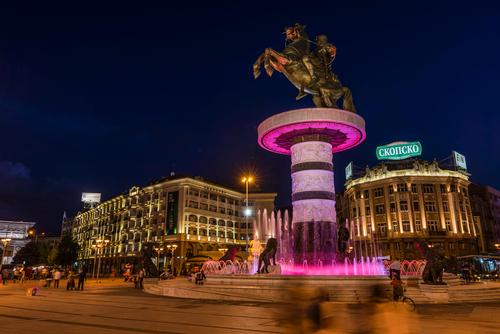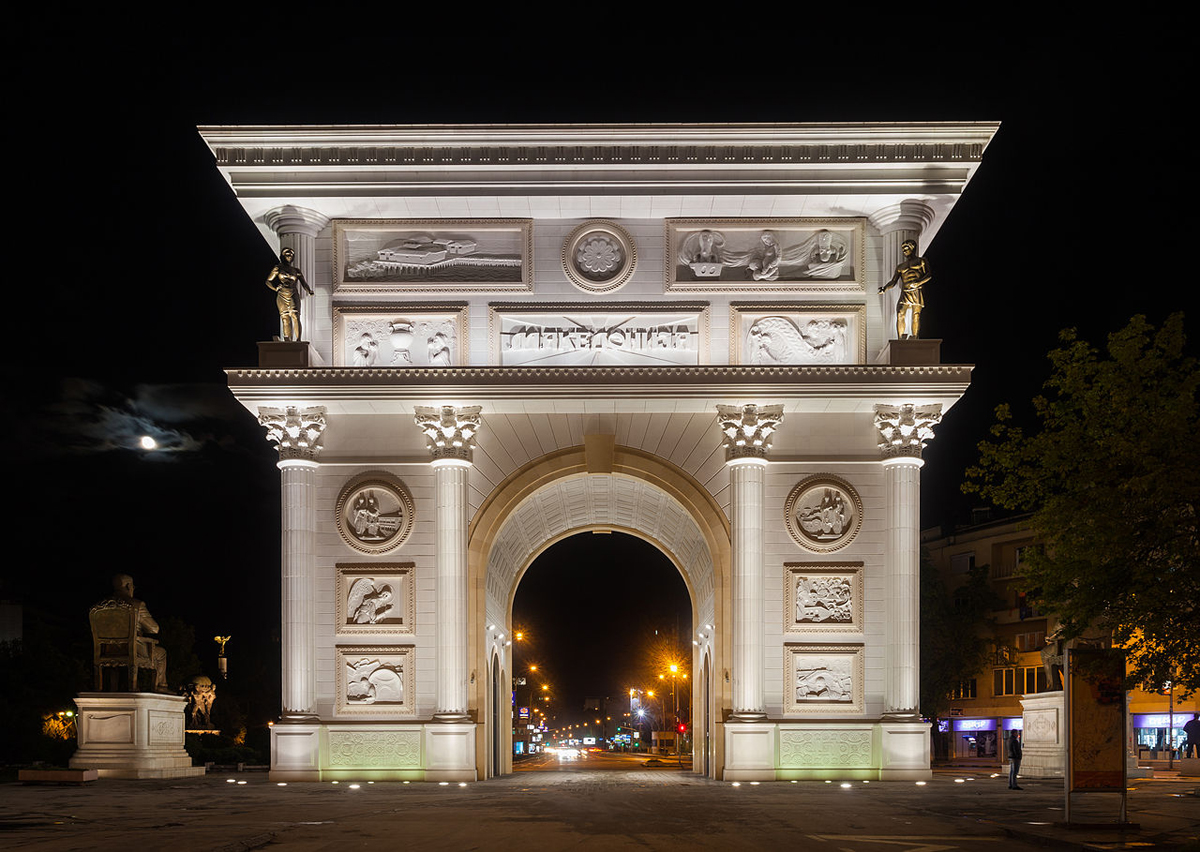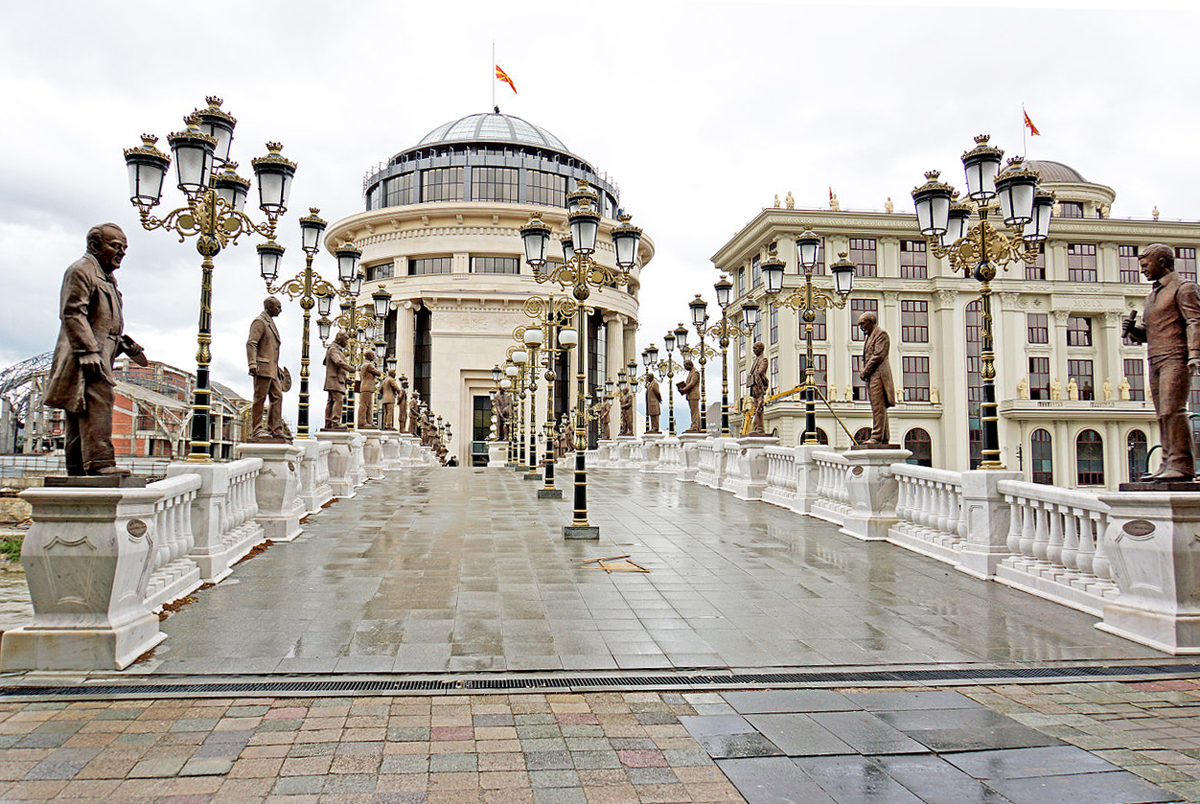01 Sep 2014
Macedonia searches for national identity as capital undergoes controversial €500m cultural revamp
BY Tom Anstey

Macedonia’s capital of Skopje is undergoing a major revamp, but some are calling the controversial makeover – intended to attract more tourists to the country – a “crime” against heritage and culture.
Skopje, which became the capital of Macedonia in 1991 after the breakup of Yugoslavia, is trying to make a name for itself on the international stage, using eye-catching architecture to entice visitors from abroad.
The €500m (US$656m, £395m) Skopje 2014 project is financed by the Macedonian government, so the main ideology being decided by the ruling party – VRMO-DPMNE – with the project aiming to give the city a more “classic” appeal by the end of 2014.
Nearing the final phase of a four-year project first instigated by Prime Minister Nikola Gruevski, around 20 new buildings and 40 monuments have been completed or are nearing completion, though the project has been heavily criticised as a waste of resources in a country where unemployment and poverty are both high.
The project has seen Macedonia look to establish its own heritage after the disintegration of Yugoslavia, building monuments to numerous historical figures, including Alexander the Great and Philip II of Macedon, among others.
One of the main symbols of the project is the €4.5m (US$5.9m, £3.5m) Porta Macedonia – an arch similar to the Arc de Triomphe – designed to commemorate the long struggle for Macedonian independence.

Porta Macedonia opened in 2012 and cost €4.5m to build
A number of new bridges have also been constructed, with the most notable being Art Bridge – a pedestrian footway costing €2.5m (US$3.3m, £2m) and featuring 29 sculptures depicting Macedonian figures in music, literature and visual arts.
The art bridge depicts a number of cultural figures

While many have criticised the project, Antonio Milososki, head of the foreign affairs committee, believes the project is providing Macedonia with the national identity it was previously lacking.
"In different periods of history, our neighbours or empires decided on the structure, constitution, city architecture – whether they were Ottomans, Serbs, Bulgarians or other bigger states. Now for the first time since independence, we've put our stamp on our capital city,” said Milososki speaking to the BBC.
However, many don’t agree with him, prompting critics – most notably Miroslav Grcev, professor of urban design at the Saints Cyril and Methodius University of Skopjeadn and the designer of the Macedonian flag – to call the project a “crime against public space, culture, urbanism and art - against the city and the citizen.”
While €500m has been quoted as the top-end price for the project, The Social Democratic Union of Macedonia, the main opposition party, has alleged that the monuments have cost more than double that at around the €1.3bn (US$1.7bn, £1bn) mark.
Close Window